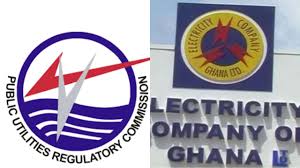
The leaders of the Nigeria Labour Congress (NLC) boycotted a meeting with government officials because of the removal of fuel subsidies and the subsequent 200 percent increase in the price of petrol. They insisted the fuel price must be returned to its previous level before further discussions occur.
Following President Bola Tinubu’s announcement of the subsidy removal during his inauguration speech on May 29, the country experienced fuel scarcity as marketers hoarded the product and raised prices. Last Wednesday, a meeting between government officials and labour leaders ended without a resolution because the Nigerian National Petroleum Corporation Limited (NNPCL) released a petrol pump price template that set the price between N488 and N557 per litre.
The NLC leaders stated they would not hold any more meetings with the government until the fuel price returned to its pre-May 29 levels to facilitate negotiations and determine the way forward.
The Trade Union Congress of Nigeria (TUC) leaders met with government officials, but the meeting needed to be more conclusive. Both parties agreed to continue talks on the issue the next day, and the TUC demanded a pay raise to offset the effects of the subsidy removal.
To prepare for an indefinite nationwide strike starting Wednesday, the NLC instructed its state councils and affiliates to mobilize workers, civil society allies, and others to support the strike. Unless the Federal Government reverses the pump price of petrol by Tuesday, the strike will proceed.
In a letter titled “Notice on mobilization for nationwide withdrawal of service,” the NLC called for full compliance with the strike directive and emphasized the need to abide by the decisions of the National Executive Council.
It is important to note that the NLC had previously condemned the withdrawal of the subsidy in a communique issued after an emergency National Executive Council meeting. They argued that the government’s action was unlawful, unfair, and contrary to national consensus and social dialogue.
Besides the NLC’s planned strike, the National Union of Electricity Employees (NUEE) also announced its intention to join the strike in protest against the removal of the petrol subsidy. The NUEE instructed its members to comply with the directive and cease work from the early hours of Wednesday. The meeting between the TUC and government officials concluded without a resolution, but some progress was made.
Both parties presented proposals that would be taken back for further discussion and approval. The government also promised to reconstitute a minimum wage review committee. The Nigerian Union of Journalists (NUJ) rejected the removal of fuel subsidy. It directed its members to participate in the nationwide strike planned by the NLC starting Wednesday if the Nigerian National Petroleum Company Limited (NNCPL) did not reverse the petrol price hike as demanded by the NLC.
Meanwhile, NNPC Limited announced its decision to discontinue crude oil swap contracts with traders and instead pay cash for petrol imports. This change aligns with the government’s deregulation policy. The African Refinery Port Harcourt Limited supported the removal of fuel subsidy, despite initial hardship, and urged Nigerians to be patient and support the President’s decision.
Implementing the Petroleum Industry Act (PIA) was highlighted as crucial by Prof. Omowumi Iledare, Executive Director of Emmanuel Egbogah Foundation. He expressed disappointment with the selective execution of the PIA, emphasizing the need for consistent implementation across the petroleum industry.
PricewaterhouseCoopers (PwC) released a report recommending various measures, including increased refining capacity, to address Nigeria’s fuel subsidy issues. The report also suggested increasing the minimum wage and implementing palliatives to mitigate the impact of subsidy removal.
_
Source: Omanghana.com




